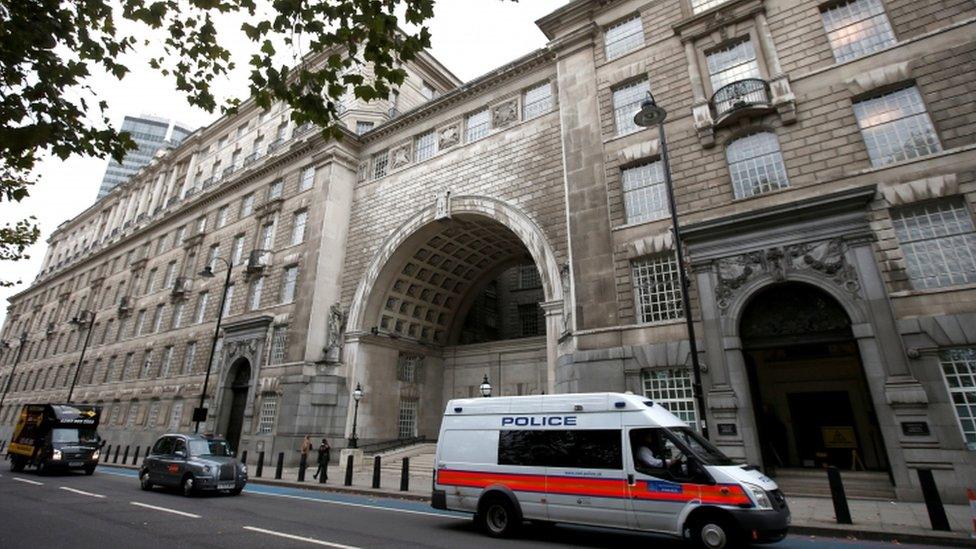MI5 does not have to confirm abusive man was a spy

A still from a video, filmed by Beth, showing the agent attacking her with a machete
- Published
The security service can continue to neither confirm nor deny whether a man who attacked his girlfriend with a machete was an MI5 agent, judges have ruled.
In 2022, a BBC News investigation established through multiple sources that the man - known as X for legal reasons - was an MI5 agent.
He used his MI5 role to coercively control Beth, his ex-partner.
He was physically and sexually abusive, and was filmed threatening to kill her and then attacking her with a machete.
Beth, not her real name, complained to the watchdog which considers complaints against the intelligence services.
She has asked the Investigatory Powers Tribunal (IPT) to investigate MI5's recruitment and handling of X, and whether any steps were taken to address the risk of harm he posed. The IPT will consider whether MI5's conduct breached Beth’s human rights by enabling X to subject her to violence and abuse with impunity.
The IPT is a panel of senior judges which investigates human rights claims against MI5, MI6 and GCHQ. The IPT’s non-public hearings can take place in secret, with evidence kept from claimants, or in private, meaning not in public but with access for claimants and their lawyers.
MI5 has always refused to publicly confirm whether or not X was an agent, meaning an authorised informant.
A preliminary hearing in May centred on whether MI5 should be able to maintain its position of neither confirming nor denying – known as NCND – whether X was an agent.
Her legal team, led by the Centre for Women’s Justice, argued it will be a serious interference with Beth’s ability to have a fair trial. They submitted that X had already disclosed his role to Beth and that hearings could take place in private.
Lawyers for MI5 argued that setting aside the longstanding NCND principle would be damaging to national security.
In a judgment, the IPT has ruled in favour of MI5, saying the principle "fundamentally relies upon the absolute consistency of its application".
The two judges conclude MI5 agents are “effectively given a guarantee that their status will not be acknowledged” and caveats would undermine it.
The judges say they "accept that maintaining NCND impacts on Beth's fair trial rights" because she cannot counter whatever evidence may or may not be presented in secret, but there are "procedural safeguards" to reduce the impact, such as tribunal lawyers representing her interests.
The full trial is scheduled for January 2025.

Watch the full investigation.
This is the story of a dangerous MI5 agent, which the government tried to keep secret.
Available now on BBC iPlayer.

The original BBC investigation exposed how X was able to leave the UK while under police investigation to work for a foreign intelligence service, and showed how MI5 had then obtained X’s belongings from the police.
X also abused and threatened to kill another former female partner and her child, and he then used the woman's name as a form of cover while working for MI5. He also threatened to kill and sexually abuse young girls and had written down his cannibal fantasies about eating children.
The government took the BBC to court to block the story being broadcast.
It failed to do so, but succeeded in gaining him legal anonymity, having argued X would be in danger if publicly named. The BBC argued he should be identified so that women could be warned about such a predatory and violent man.
Related topics
- Published22 May 2022

- Published20 May 2022

- Published9 May 2024

- Published18 May 2022
